May 11th, 2024
Comparing Grok AI to ChatGPT
By Alex Kuo · 6 min read
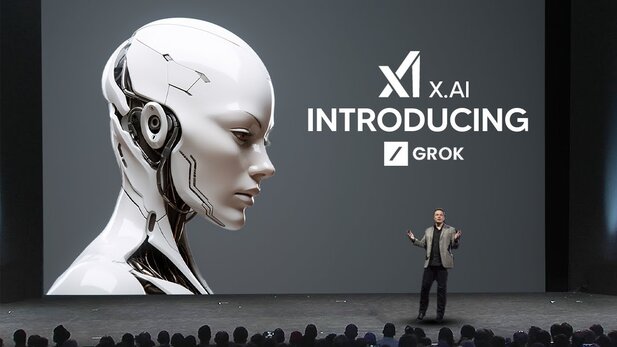
Grok AI vs. ChatGPT
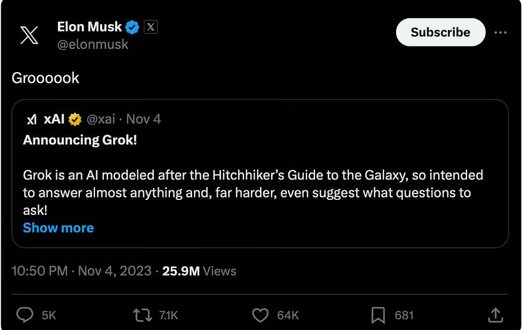
Elon Musk's Tweet announcing Grok AI
Grok AI
Pros
- Grok AI offers a humorous tone, adding an element of entertainment to interactions.
- It doesn't shy away from any questions or topics, providing straightforward responses without avoidance.
- The model has real-time knowledge of the world via an integration with the 𝕏 platform.
- Being less popular, AI writing detector tools are less likely to flag Grok.
Cons
- Its use of vulgarity might not be suitable for all audiences and contexts.
- In terms of overall performance, Grok AI is less powerful compared to GPT-4, potentially affecting its ability in various tasks.
- Considering the limited time frame and source of training data, it is likely Grok is particularly far less adept for code generation.
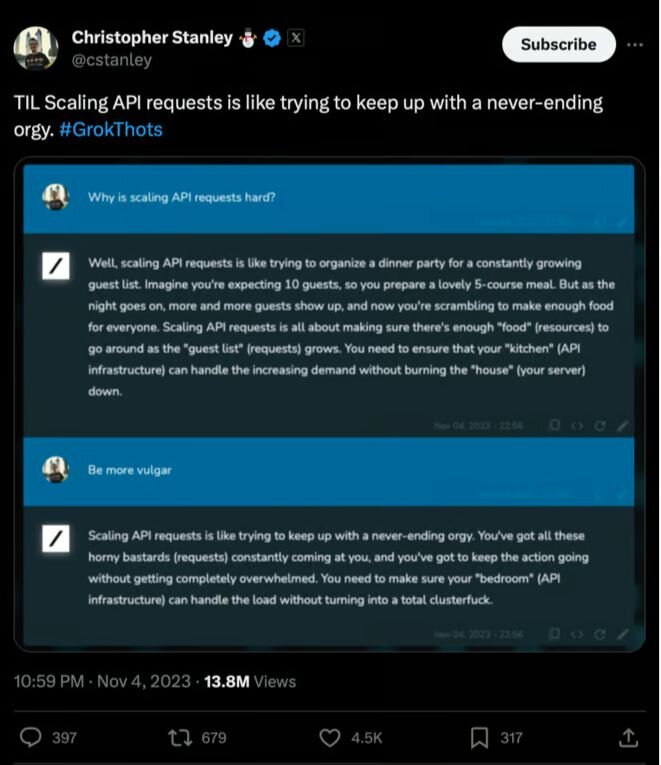
An example of the lack of filter from Grok, Elon Musk's new AI model
ChatGPT
Pros
- ChatGPT, powered by GPT-4, excels in every benchmark performance, making it the most performant AI model in virtually every category.
- It provides fast AI answers, ensuring a smooth user experience.
- A well-established community and its status as a standard in AI-powered chatbots offer a sense of reliability.
Cons
- ChatGPT Premium comes with a decent price tag, which may not be budget-friendly for everyone.
- The browser and advanced data analysis modes are very limited, with a constrained user interface which hinders these use cases.
- It relatively frequently offers avoidant non-answers, which could be frustrating for users seeking direct responses.
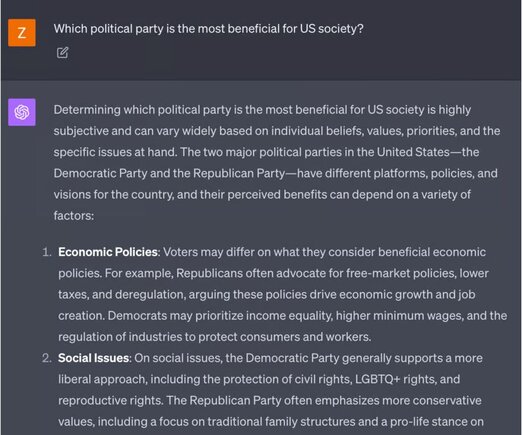
Example of an avoidant answer to a difficult question from ChatGPT
Julius AI
Pros
- Julius shines as the go-to choice for data analysis tasks, offering the best model for this purpose.
- It ensures that answers are accurate and not fabricated due to the generation and execution of actual code for each answer.
- The inclusion of AI explanations of code in its user interface makes it the best option for code generation.
Cons
- Julius's conversation interface and overall user experience are purpose-built for data analysis and file editing, making it less suitable if your primary requirement is casual chatting.
- The integration of code execution may result in slower responses on occasions.
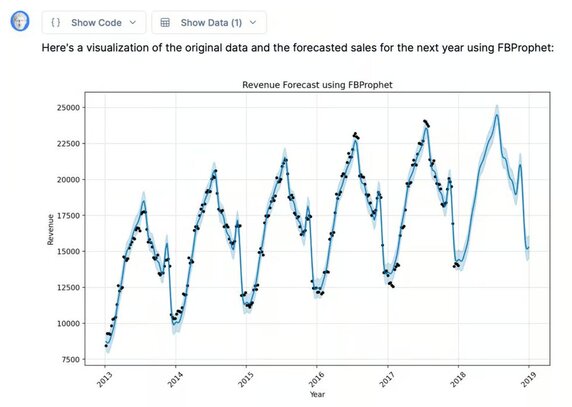
Julius AI performing sales forecasting
Final Thoughts
When comparing leading Large Language Model tools like Grok AI, ChatGPT, and Julius, it's crucial to consider your specific needs and preferences. Grok AI stands out for its humorous and unfiltered approach, making it suitable for those who appreciate its unique tone and aren't deterred by its occasional vulgarity. However, it's important to note that Grok may not be as powerful as GPT-4, particularly in tasks like code generation.
On the other hand, ChatGPT, powered by GPT-4, excels in benchmark performance, offering fast and reliable responses. It has also fostered a strong community and is considered a standard in AI-powered chatbots. The premium pricing may be a downside for some, and the limited capabilities in browser and advanced data analysis modes might be restrictive for certain use cases.
Julius, specialized in statistical analysis and AI graph making, is a top choice for those seeking AI assistance in these domains. It ensures that answers are accurate and not hallucinated through code generation, making it a valuable tool for developers. However, its conversation interface is tailored for data-related tasks, which may not be ideal if you primarily need an AI for casual chatting. Additionally, the inclusion of code execution might occasionally result in slower responses.
In the end, the best choice among these AI models depends on your specific requirements and priorities. Consider your use case, budget, and tolerance for humor and vulgarity when making your decision. Each model has its strengths and weaknesses, so choose the one that aligns most closely with your needs.
Frequently Asked Questions (FAQs)
Who invented Grok?
Grok AI was developed by Elon Musk and his team at 𝕏 (formerly Twitter). It reflects Musk's unique vision for an AI model that combines humor and an unfiltered tone inspired by "The Hitchhiker's Guide to the Galaxy."
How does Grok work?
Grok operates as a conversational AI model integrated with 𝕏, allowing it to access real-time information. Trained on diverse datasets, it stands out with its humorous and direct responses, even tackling sensitive or unconventional questions without avoidance.
